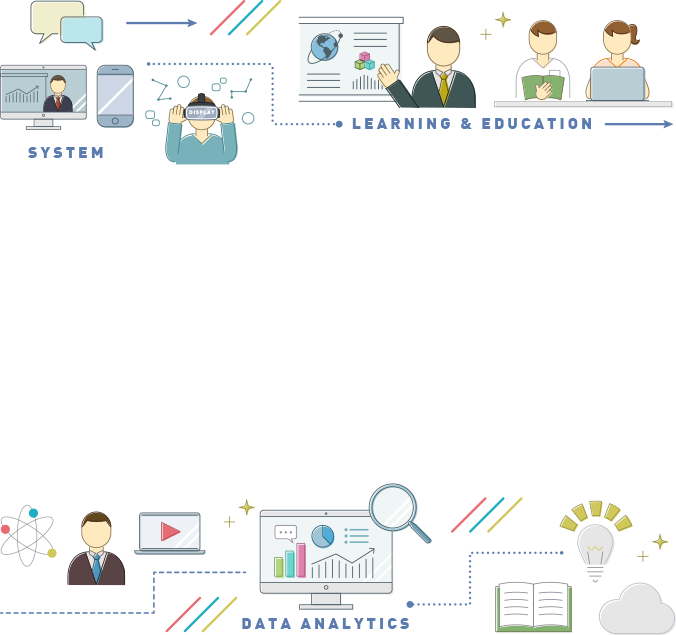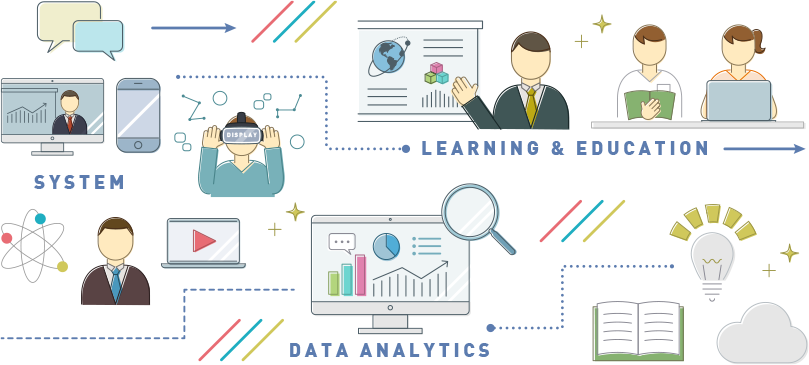To “The Wednesday Salon” by Dr. Akahori who used to be my mentor during my graduate school days, I provide a topic about Learning Analytics titled “What can we do by visualizing learning behavior”?
I introduced Moodle, a digital material delivery system “B-QUBE,” and a learning dashboard, “Metaboard”, and a reading path on it, all of which are used in operation and research at Kyushu University. I introduced Real Time Analytics, which is the previous version of Metaboard developed by Dr. Shimada. I introduced it because I want to use it in my classes without research and I want people to know how great it is. As a case study of learning analytics in practice, B-QUBE has not yet been deployed outside of the university and is a system that will be deployed in the future, so I introduced a STEM class that was conducted at a high school using BookRoll as a previous case study, which incorporated collaborative problem-solving learning, and the learning that I was allowed to do as one of the SIP Phase II cases. I also introduced the dashboard class practices and the teachers’ interpretation of the learning data.
Since the presentation time was limited to 25 minutes, we could only present about one case study per result, and we regret that we could not show you all the results, but we would like to introduce them if we have a chance to talk about them again. The logs of digital learning materials are more granular than LMS logs alone, and are one of the best ways to analyze the learning process, although B-QUBE and Metaboard are also of interest to schools and teachers outside of the university, and we are working on making them available outside of the university as well, We would like to promote good research and practice with researchers and educators who are interested in advancing learning analytics research and practice.
It had been a while since I met Dr. Akahori at the Ministry of Economy, Trade and Industry (METI) as an advisor for the Ministry’s “Classroom for the Future” project. We had a meeting in the first 15 minutes, and I was very happy to hear that he had read my presentation material in advance and said he wanted to hear more about the topic and that it would be interesting. After the presentation, during the Q&A session, the professor himself actively asked questions like, “I don’t understand this part, why? It reminded me of the research seminar I had in graduate school. He has been pursuing research in educational technology for a long time and has created a path for it. When it came to the discussion of research, nothing had changed from my graduate school days (although my body shape has changed a lot), but I really enjoyed it and noticed some new viewpoints that I needed to think about. It was exciting. Talking with Dr. Akahori gives me a lot of energy. It also gives me the energy to work harder on my research.
Now that I have my own laboratory and am in a position to supervise research, seeing Dr. Akahori’s activities made me strongly believe that this is how I want to be as a researcher. I renewed my determination to continue to do my best to conduct research that can contribute to the improvement of the education and learning environment, with a view to social implementation.
Thank you, Dr. Akahori. Please let me talk with you, either on this occasion or not at all. I would like to learn more.







